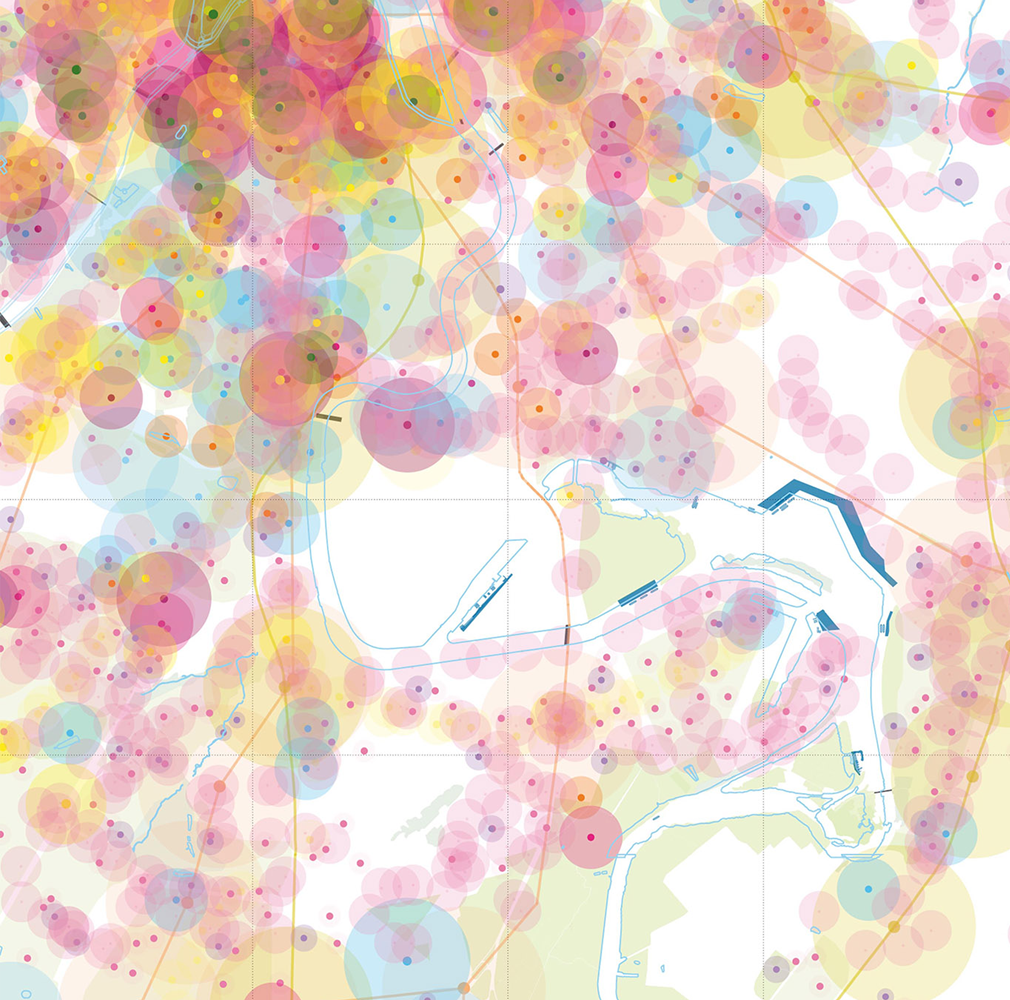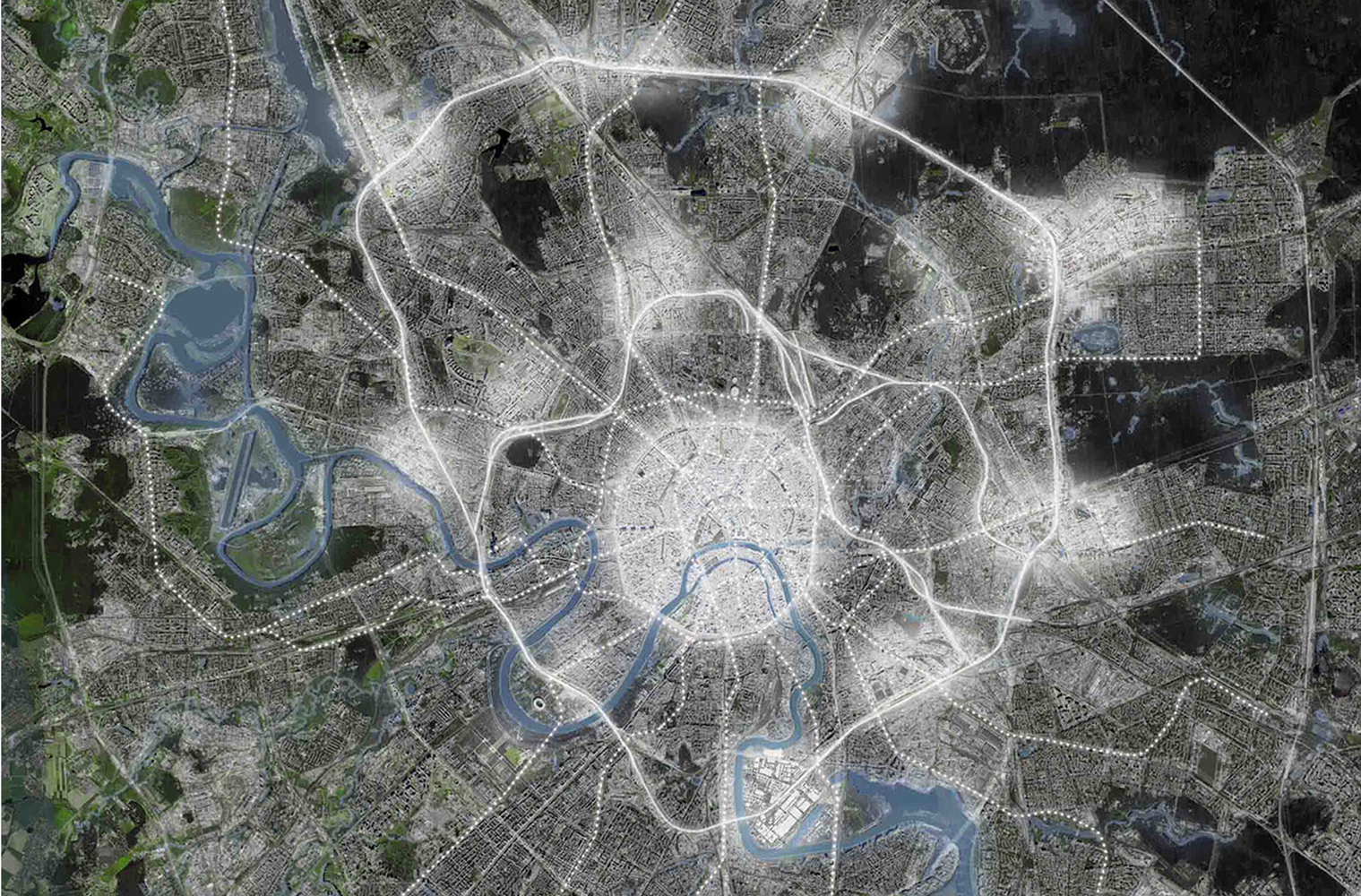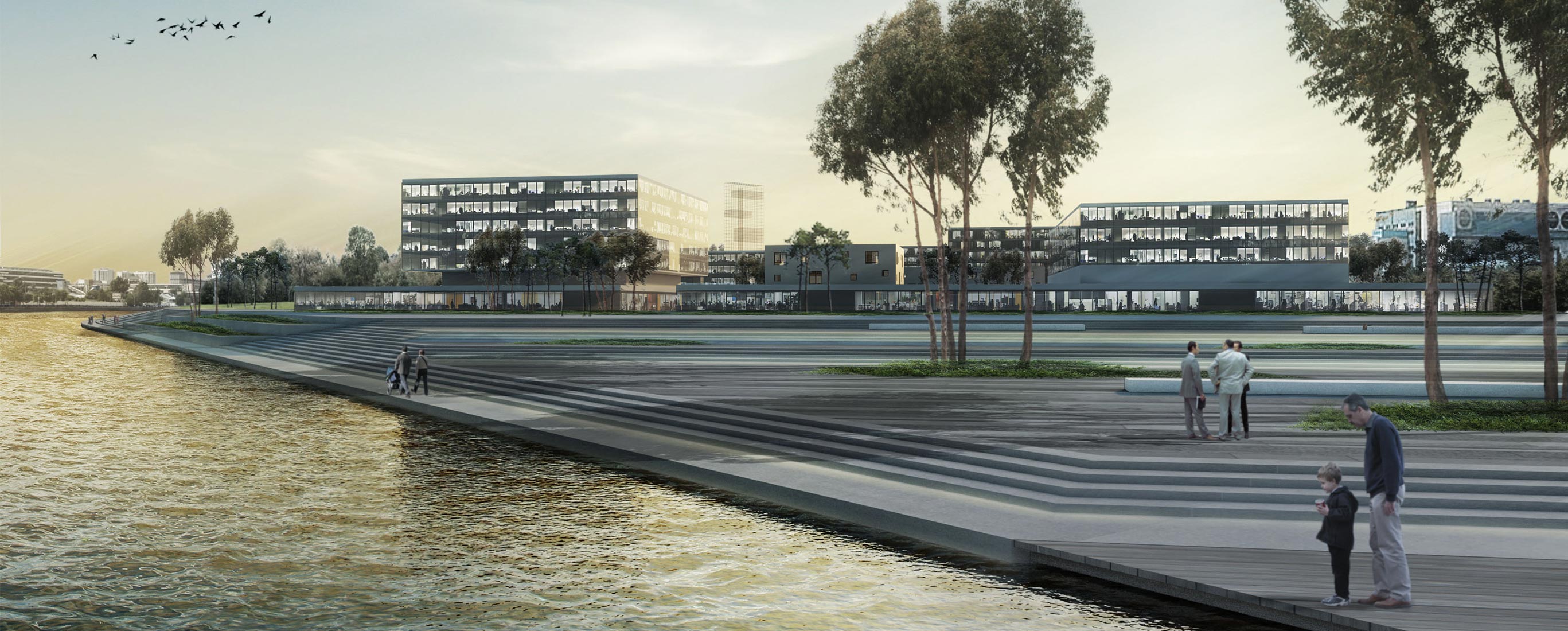
ZIL Factory
Moscow’s city centre concentrates most of the city’s social, economic, intellectual and cultural activity in only 6% of the administrative surface. Beyond this area the city is determined by a high degree of mono-functionality, zoning and fragmentation. As a consequence Moscow’s centre and infrastructure are close to collapse.The project states that a radical de-centralization of the city is indispensable and that centrally located industrial areas have a huge potential for a transformation into sub-centres. The ZIL site could become a pioneer for such an approach, open for experimentation and innovation. A careful long-term development strategy that integrates the site with its immediate urban context as well as with the larger urban infrastructures of Moscow to initiate a heterogeneous transformation process is provided. It is proposed to closely integrate transport as well as existing and new green infrastructures – such as the new
Public Rail Ring, Moskva Riverfront or a new, self-maintaining Pine Park
– with the territory. It is proposed to closely integrate transport as well as existing and new green infrastructures – such as the new Public Rail Ring, Moskva Riverfront or a new, self-maintaining Pine Park – with the territory. A careful long-term development strategy that integrates the site with its immediate urban context as well as with the larger urban infrastructures of Moscow to initiate a heterogeneous transformation process is provided. It is proposed to closely integrate transport as well as existing and new green infrastructures – such as the new Public Rail Ring, Moskva Riverfront or a new, self-maintaining Pine Park – with the territory.
Architect
Uberbau
Team
Ali Saad (partner-in-charge), Marta Torres Ruiz (team leader), Jurij von Ortenberg, Johanna Claus, Marta Lòpez Marcos.
Collaborators
bgmr (landscape), Institute for Transport Economy & Politics NRI HSE (Transport), Gleb Vitkov (Local Architect), Davide Abbonacci (Visualisation).
Consultants
Kaye Geipel (Theory), Dr. Wilhelm Klauser (Economy).
Competitors 2nd phase
Mecanoo, Project Meganom, Valode & Pistre
Date
2013
Type
Invited international competition
Award
1st prize (1 of 2)
Client IRP group on behalf of City of Moscow and AMO ZIL Factory.
Location
Moscow, RU
Surface
283 ha
Status
Completed
Selected publications
Project booklet I Approach, Project booklet II Strategy, Project booklet III Illustrations
Architect
Uberbau
Team
Ali Saad (partner-in-charge), Marta Torres Ruiz (team leader), Jurij von Ortenberg, Johanna Claus, Marta Lòpez Marcos.
Collaborators
bgmr (landscape), Institute for Transport Economy & Politics NRI HSE (Transport), Gleb Vitkov (Local Architect), Davide Abbonacci (Visualisation).
Consultants
Kaye Geipel (Theory), Dr. Wilhelm Klauser (Economy).
Competitors 2nd phase
Mecanoo, Project Meganom, Valode & Pistre
Date
2013
Type
Invited international competition
Award
1st prize (1 of 2)
Client IRP group on behalf of City of Moscow and AMO ZIL Factory.
Location
Moscow, RU
Surface
283 ha
Status
Completed
Selected publications
Project booklet I Approach, Project booklet II Strategy, Project booklet III Illustrations














